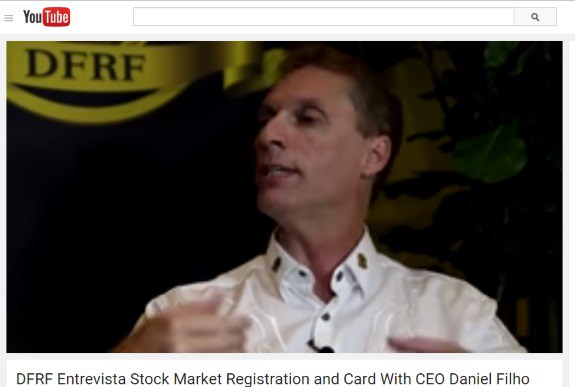
The SEC declined Friday to say whether two individuals named prospective defendants in a massive class-action lawsuit brought by the Trustee in the 2014 TelexFree bankruptcy case were the same two persons charged with securities fraud last year by the agency in the DFRF Enterprises/Daniel Fernandes Rojo Filho Ponzi- and pyramid-scheme case.
On June 30, 2015, Gaspar C. Jesus, 54, of Malden, Mass., and Eduardo N. Da Silva, 40, of Orlando, Fla., were among the nine named civil defendants in the DFRF/Filho case. Jesus allegedly received $56,000 from DFRF; Da Silva allegedly received $221,000.
Filho, also charged criminally, “orchestrated” the DFRF scheme with the “assistance” of Jesus, Da Silva and others, the SEC alleged at the time. The agency also has referred to Da Silva as simply “Silva.”
Promoters who move from one online investment fraud scheme to another and help scammers grease HYIP Ponzi wheels have posed a longtime problem. Both TelexFree and DFRF largely were aimed at Spanish- and Portuguese-speaking communities, the SEC has alleged.
And that’s not all they had in common. Investors in both MLM-style “programs,” according to court filings, sometimes paid their sponsors directly, rather than paying the companies.
“The amount of checks and cash that the individual defendants collected directly from investors is currently unknown,” the agency said about DFRF and how money entered the system last year.
Such mechanics can led to secret deal-making and the siphoning of funds by insiders, creating smaller frauds inside of larger ones.
On April 4, 2016, TelexFree Trustee Stephen B. Darr asked Chief Bankruptcy Judge Melvin S. Hoffman for permission to amend a defendant class-action case to include dozens of additional defendants alleged to be “winners” in the scheme.
Among the proposed additional defendants were “Gaspar Jesus” of Lynn, Mass., and “Eduardo N. Silva” of Orlando, Fla.
As noted above, the SEC declined to say whether the individuals were the same ones named in the DFRF/Filho case.
Jonathan Shapiro, a Boston defense attorney representing Gaspar C. Jesus in the DFRF/Filho case, said on Friday he “cannot confirm that the person named in the [TelexFree] bankruptcy matter is the same person I represent in the DFRF matter.”
On Saturday, Martin R. Rosenthal, a Boston attorney representing Eduardo N. Da Silva in the DFRF/Filho case, said he had “no comment” on whether his client was the same individual named in the Trustee’s proposed amended class action.
Darr has alleged Eduardo N. Silva received more than $2.4 million from TelexFree. Gaspar Jesus was alleged by Darr to have received $882,936. The Trustee did not return a request for comment on whether the individuals were the same ones named in the SEC’s fraud case against DFRF and Filho.
The SEC previously tied DFRF/Filho to TelexFree defendant Sann Rodrigues.
Both DFRF and TelexFree spread in part on YouTube.
The surname “Filho” also is referenced among the alleged “winners” in Darr’s proposed amended class action, though not specifically Daniel Fernandes Rojo Filho.
Comments
2 responses to “SEC, Trustee, Defense Attorneys Mum On Possible Deeper Ties Between TelexFree And DFRF Schemes”
This “direct payment” to sponsor/upline makes forensic accounting difficult.
I remember when TVI Express was active, one of the benefits when you “cycle out” of the first matrix (there are two of 15 positions each) is you also get a “membership voucher” which you can either redeem for another position in the matrix… or sell the voucher to a prospective member and pocket the $250 join fee. Neither of which really adds money to the system, but surely enticed the members to recruit (and get paid directly).
I don’t doubt that various recruiting schemes have similar “incentives” to “split the loot”.
Stephen Darr has advised the judge about extremely complex “triangular transactions.” This type of transaction is enough to make a person’s head spin. The ASD and Zeek cases had similar transactions.
From what you note, looks as though TVI Express also was a quagmire of such transactions.
Patrick